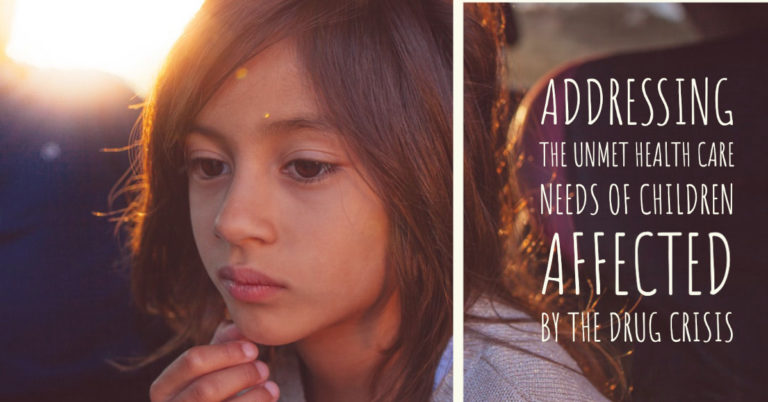
At the heart of our nation’s opioid epidemic lies West Virginia, and in the middle of this crisis are its children. The increase of parental drug misuse and abuse, impaired parenting, incarceration, extended separation from parents, overdose deaths, and introductions into the child welfare, court, and foster care systems have resulted in a children’s health crisis in our state.
The statistics tell a dark story: According to the West Virginia Department of Health and Human Resources, since 2013, there has been a 67% increase in the number of children in state custody, from 4186 to 7000. Nationally, the number of children in foster care has slightly decreased.
Between 2011- 2017, abuse and neglect filings in circuit courts rose 70%. Between 2014-17, there was a 22% increase in abuse and neglect referrals, and a 34% increase in open child protective services (CPS) cases. Our state currently averaged a 27% vacancy rate for CPS positions. As of January, 2020, 7,037 children are in foster care/child welfare system, and over 10,000 of West Virginia’s public school students self-report as homeless. In 2018, 482 children who were in state custody ran away—some of them multiple times.
For these children, adverse childhood experiences (ACEs) are highly prevalent and associated with a heightened risk for poor health outcomes in both childhood and adulthood. Empirical literature on resilience has identified protective factors for traumatized children that improve health outcomes, but there is limited integration of these findings into proactive strategies to mitigate the impact of ACEs. Our pediatric health care system remains medically underserved; there is no concerted effort to assess or improve the system to address the increasing need for comprehensive care.
West Virginia’s response to the drug epidemic has been a patch work of reactionary, adult-focused programs and services that have been systemic, siloed, and do not address the health care needs of affected children.
Our school systems, foster care and child welfare systems, and courts and juvenile justice systems are buckling under the weight of the influx of children in their care who need mental health care and support services. Currently, there is no state strategic plan to address this—no task force, no statewide assessment of need, and no leadership at the state or community levels demanding action.
Johann Hari said: “The opposite of addiction is not sobriety; the opposite of addiction is connection.” Think Kids believes that the first step to changing the way we care for West Virginia’s children affected by the drug epidemic lies in connection— creating a state community network to bring voice, insight, experience, and leadership in a collaborative approach that is organized for action and change.
Biological and foster care parents, kinship caregivers, teens and children who have aged out of foster care, primary and behavioral health care providers, teachers, CPS workers, first responders, and community leaders — each of these groups tends to function in isolation from each other, from other systems, and at varying proximities from the crisis itself. We need establish open channels of communication, informed by communities and systems, that provide equal and authentic means of connecting. If we build a statewide community of support and trust, united through the power of data and storytelling, we can address underlying issues that, as a culture, is prohibiting us from addressing this crisis head on—stigma, misinformation, fear, etc. We need to create a cross-sectional network that integrates community leaders, practitioners, parents, school personnel, researchers, and policy makers, into a unified team dedicated to transparency, authenticity, community-building and problem-solving, who can collectively advocate for the marshalling of adequate state resources for children without the ability to speak for themselves.